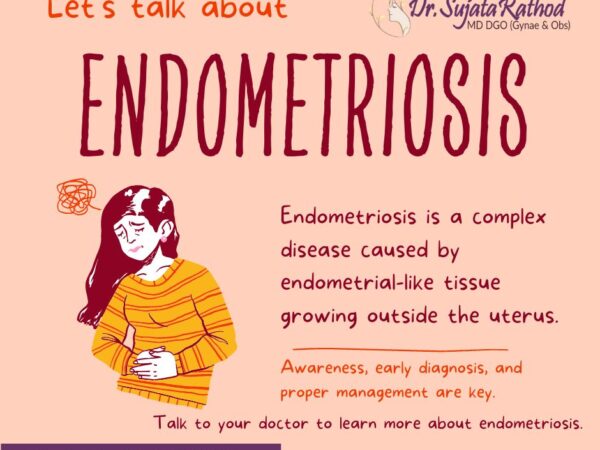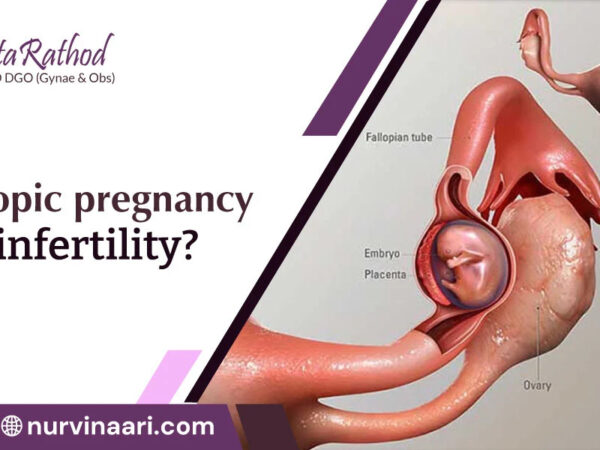Generally, the fertilized egg develops around the lining of your uterus. But if it grows outside that (in the fallopian tube), it might cause ectopic pregnancy. Your fallopian tube isn’t designed to stretch like a uterus to accommodate a growing baby.
Ectopic pregnancy causes bleeding in the mother. It can be a life-threatening condition that requires immediate medical attention. The baby growing outside your uterus (whether in the fallopian tube or the ovaries) can’t take birth, as their growth is impossible. Reach out to the gynecologist in Thane West immediately if you notice ectopic pregnancy symptoms.
Causes and Symptoms of Ectopic Pregnancy
You can be at risk of an ectopic pregnancy if you have Pelvic Inflammatory Disease or a history of ectopic pregnancy. IVF or any form of treatment for infertility also puts you at a greater risk of these complications. The risk also increases as you age. Women with ectopic pegnancy experience similar symptoms to those with normal pregnancy, but you might notice some additional changes, such as:
- Unbearable pain in your lower back and pelvis
- Vaginal bleeding
- Dizziness
Ectopic pregnancy can be severe and might lead to the complete rupturing of your fallopian tubes if left untreated. You will notice symptoms like fainting and low blood pressure. You might also experience a sharp pain in your belly, which is another sign of ruptured tubes.
Ectopic pregnancy is rare, but the risk is higher in women diagnosed with endometriosis. Every one in four women with endometriosis might develop ectopic pregnancy. Consult a doctor for endometriosis treatment in Thane to ensure a safe and healthy pregnancy.
How Ectopic Pregnancy is Diagnosed?
Your healthcare provider will order tests to diagnose your pregnancy and then perform other medical procedures to rule out the possibility of an ectopic pregnancy. The doctor will conduct an ultrasound to see if the fertilized egg is implanted in the uterus. They might also order urine and blood test for further examination.
As mentioned earlier, ectopic pregnancy is considered a medical emergency and requires immediate treatment. Since your fallopian tubes and other parts of your reproductive system (except the uterus) are not designed to stretch for an embryo, there’s a good chance they will rupture. Fortunately, most ectopic pregnancy cases are diagnosed in the first trimester (within three months of your pregnancy)
Treatment
Your doctor might recommend a methotrexate injection to end your pregnancy immediately. It’s comparatively safer and less invasive than surgical treatment, but you will still need follow-up appointments with your gynecologists to monitor your condition. If you are a risk of the fallopian tube rupture or it’s already ruptured, your healthcare specialist will perform an emergency surgery (usually laparoscopic) to remove the fallopian tubes with your egg or just the egg, leaving the tubes intact (if that looks possible).
The risk of ectopic pregnancy can’t be avoided, but you can have successful pregnancies following an ectopic pregnancy. Talk to your doctor about the risk factors or what you think caused ectopic pregnancy.



Comments are closed.